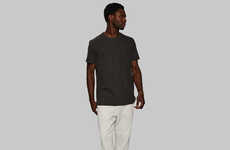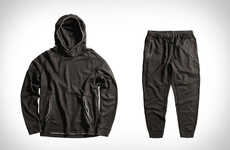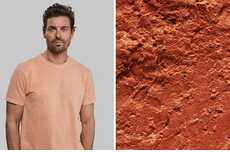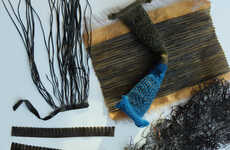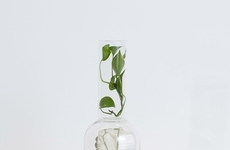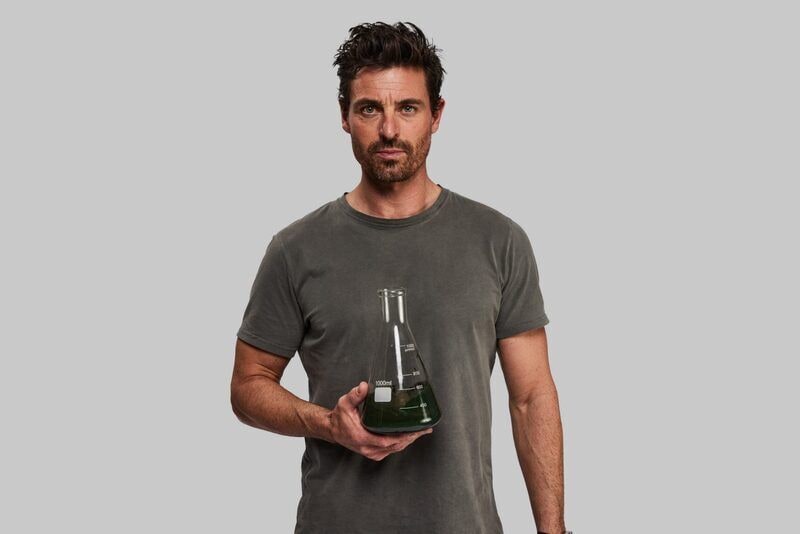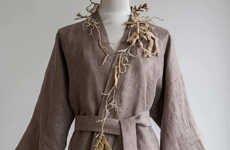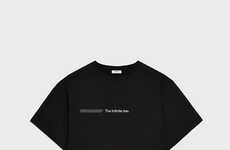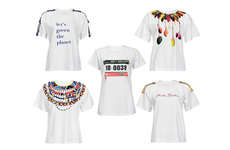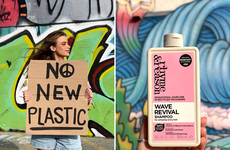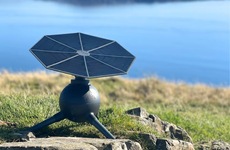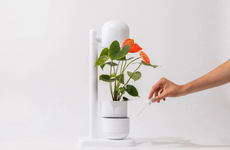
Vollebak Joins Living Ink on a New Experimental T-Shirt
Experimental clothing imprint Vollebak works in collaboration with biomaterial brand Living Ink on a new tee that is made using black dye sourced from algae. The dye has been in development for the past five years through extensive research and development. It is made by collecting spirulina algae waste drawn from natural food coloring industries and then heating the product to create a black tonal char.
Vollebak's founder Steve Tidball talks about the dye to Dezeen, stating that "We've now got a sustainable alternative to dyeing clothing using traditional carbon black-based dyes. Every black thing we own is likely to contain carbon black, from our phones to our cars to the ink in our pens. Vast tracts of lands called tar sands are stripped of all life and vegetation to extract the heavy petroleum, while the production process creates significant greenhouse gas emissions."
Image Credit: Vollebak
Vollebak's founder Steve Tidball talks about the dye to Dezeen, stating that "We've now got a sustainable alternative to dyeing clothing using traditional carbon black-based dyes. Every black thing we own is likely to contain carbon black, from our phones to our cars to the ink in our pens. Vast tracts of lands called tar sands are stripped of all life and vegetation to extract the heavy petroleum, while the production process creates significant greenhouse gas emissions."
Image Credit: Vollebak
Trend Themes
1. Sustainable Fashion - The trend of using eco-friendly materials and methods to create fashion apparel allowing brands to appeal to conscious consumers.
2. Bio-fabrication - The trend of using bio-materials to create fabrics and textiles, allowing for sustainable alternatives to traditional manufacturing processes.
3. Circular Economy - The trend of creating a sustainable economic system through the reduction, reuse, and recycling of materials, aiming to decrease waste and promote sustainability.
Industry Implications
1. Fashion Industry - The industry can invest in research and development of eco-friendly processes and materials to appeal to the conscious consumer and promote sustainability.
2. Bio-materials Industry - The industry can collaborate with fashion brands to innovate sustainable materials and processes, supporting the trend of bio-fabrication and promoting sustainability.
3. Recycling Industry - The industry can support the trend of circular economy by providing a cost-effective alternative to traditional manufacturing processes, allowing for the reduction, reuse, and recycling of materials in fashion apparel.
3.4
Score
Popularity
Activity
Freshness


